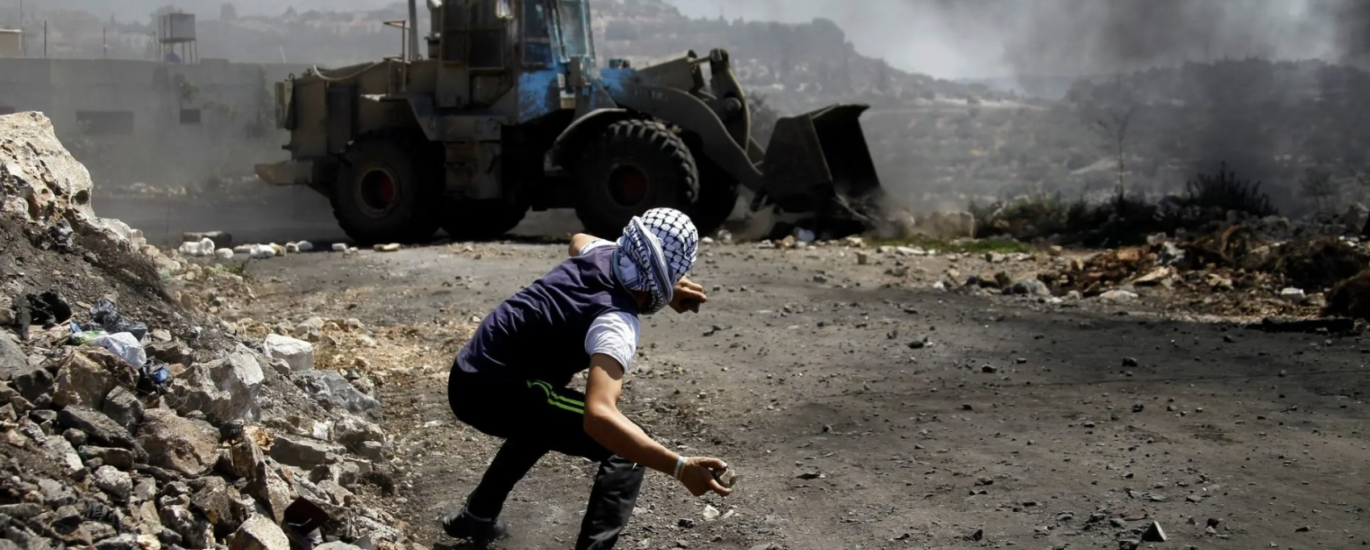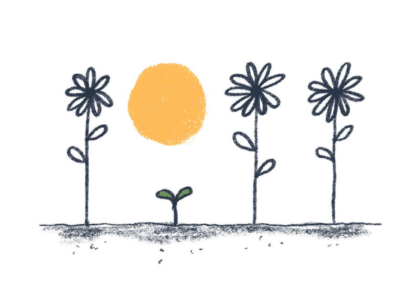“a different sort of feminism growing within an Islamic context”
Amy is joined by Dr. Islah Jad to discuss her book, Palestinian Women’s Activism: Nationalism, Secularism, Islamism, and the many roles of Palestinian women as they resist oppression.
Our Guest
Dr. Islah Jad
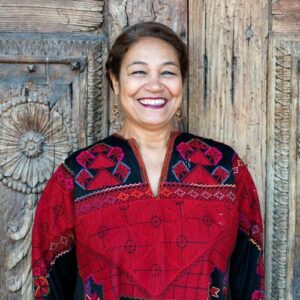
Dr. Islah Jad is a tenured Assistant Professor of Gender and Development at Birzeit University. She is also the co-founder and current Director of the Institute of Women’s Studies at Birzeit and a Core Group Member of the Arab Families Working Group. A prominent figure in the Palestinian women’s movement, Jad also helped to establish the Women’s Affair Centre in Gaza and Nablus, Les Amies du Francis, the Child Corner project in el-Bireh, and the WATC (Women’s Affairs Technical Committee). Jad carried out Gender Consultancy for the United Nations Development Programme and was a co-author of the United Nation’s Arab Human Development Report of 2005. She earned a bachelor’s degree in political science from Cairo University, a master’s degree in political theory from the University of Nantes, and a Ph.D. in gender and development studies from the University of London. She currently teaches at Birzeit University.
The Discussion
Amy Allebest: During my sophomore year of college, I had the life-changing experience of studying abroad for five months at the Jerusalem Center for Near Eastern Studies. My university was able to build a campus in Jerusalem under the strict condition that its students would maintain strict political neutrality regarding the conflict in the region, and so everyone in my student cohort was required to take classes on both Arab civilization and Jewish civilization and on Judaism and Islam. We went on field trips all over Israel and Palestine, and also Egypt and Jordan, and we had to split evenly between students studying Arabic language and students studying Hebrew.
My cohort and myself, We all came home with a deep love for all of the people and families that we met, and also a deep grief about the history and the ongoing tragedy in that beautiful place. And I still have little blue bowls that are painted with flowers that I bought from a Palestinian man named Shaban in East Jerusalem. I still eat out of those bowls, and I remember the kindness and goodness of those people that I loved. But, while I still retain memories and I have followed the political situation in the region throughout my life, never until this year had I thought specifically about women’s rights and women’s activism in Palestine. So, I was really excited to find the book Palestinian Women’s Activism: Nationalism, Secularism, Islamism by Dr. Islah Jad and I am honored to welcome Dr. Jad to the podcast today.
Welcome, Islah. Thank you so much for being here.
Islah Jad: It’s my pleasure. Thanks for having me.
AA: So I’m wondering if you can introduce us first to yourself? Tell us a little bit about you, where you’re from, your family, and the work that you do.
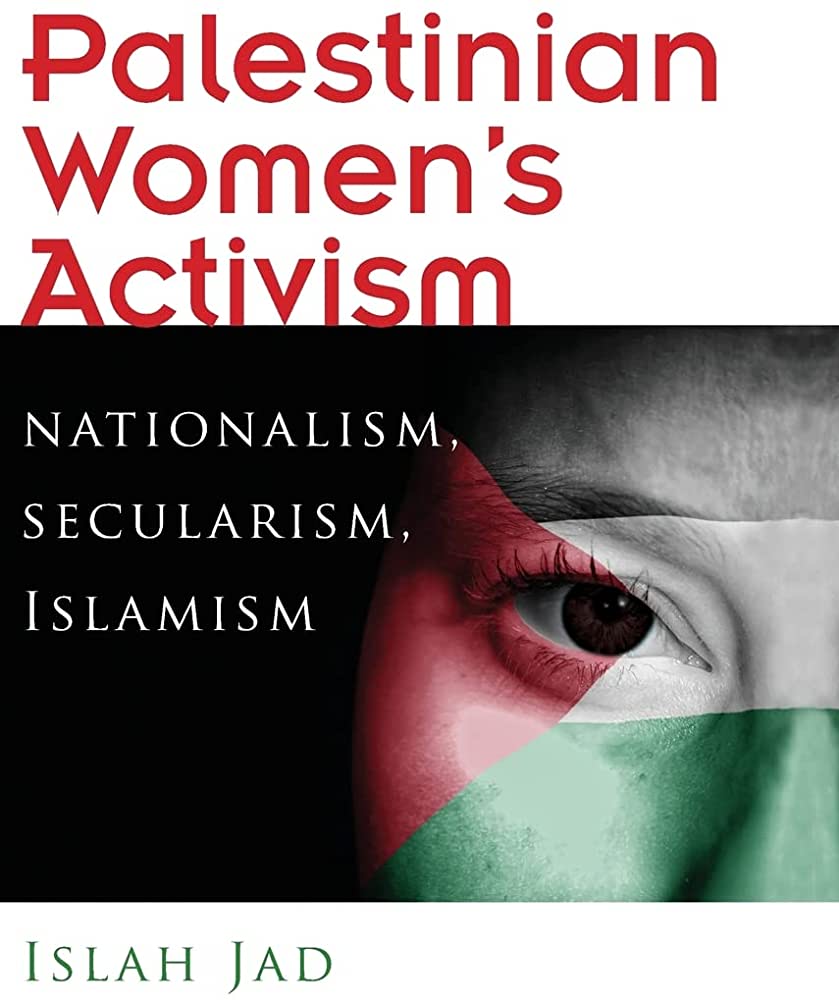
IJ: Well, I have been working at Birzeit University since 1984 and since then I was a lecturer and then associate professor in Gender Studies. Originally, I’m from Egypt and I moved to live in Palestine in 1979. I have three kids and I consider myself, first of all, as a feminist activist and also I am a researcher and lecturer on gender issues and women’s studies at Birzeit University.
AA: Why did you move to Palestine from Egypt?
IJ: My husband is a Palestinian.
AA: Ah, okay. Where did you meet each other?
IJ: In Cairo University.
AA: And had he been there studying for his degree in Cairo, and so you met there?
IJ: Yes. He was studying his BA at Cairo University (Faculty of Political Science and Economy) and once we graduated from Cairo University, we left Egypt and then we traveled a lot– to Lebanon, Syria, Jordan, UK– and then we got settled in France to do our master’s degree. I came back to Palestine and then he went back to finish his PhD after finishing our master’s degree. Then, once I finished my duties with my kids, I went back to the UK to finish my PhD at SOAS University in Gender & Development Studies.
AA: Wow, that’s so cool. I actually went back for my master’s degree after my duties with my kids too. My kids got a little older and I went back to school. And I’m actually starting a PhD now, but a little bit later in life. I didn’t know that about you, that’s so cool! So, I’m wondering if you can start us off first before we dig into your book.
Could you tell us and kind of refresh listeners’ memory about Palestine, where it’s located on a map and a little bit about the history of Palestine? Again, I feel really lucky that I got to study Palestine in depth because of my study abroad program, but if I hadn’t, I don’t know that I would know very much about it. So maybe you could just give us a little bit of background information?
IJ: Palestine is a tiny country. It used to be part of Greater Syria til the First World War. After the First World War ended with the defeat of the Ottoman Empire, Greater Syria was under the control of the Ottoman Empire so at the end of the war there was the famous agreement between Britain and France to divide the land that was under control of the Ottoman Empire. So, Syria and Lebanon went to France, and Iraq went to Britain as well as the Palestinian Territories.
It didn’t go with the rest of Greater Syria under the control of the French, as it’s supposed to be at the beginning, because the United Kingdom realized that it’s very important to protect its maritime road to India through the Suez Canal. So under the pretext of protecting the Jewish community in Palestine, they put Palestine under the directorship of the British Mandate. That was in 1917 and since then, the presence of Great Britain in Palestine– it gave the infamous promise of the Balfour Declaration (that was also in 1917) to create a Jewish homeland for the Jews in Palestine. And since then, we are in a continuous war with the Zionist movement that was behind the idea of creating a Jewish national state, a Jewish national home as it was in the Balfour Declaration.
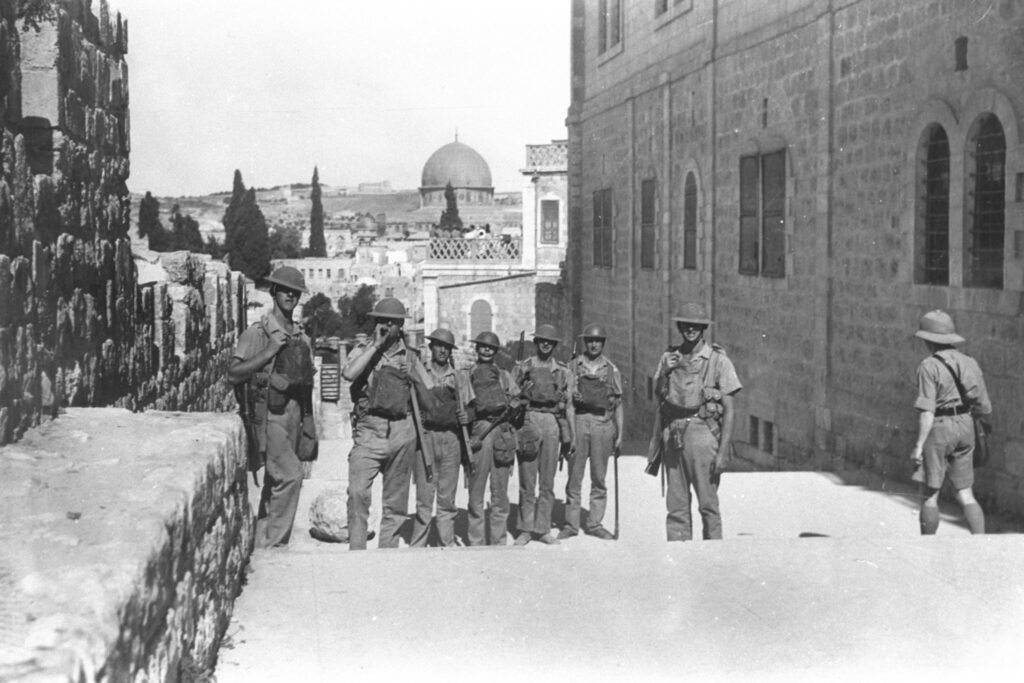
After the end of the Second World War, the intentions of the Zionist movement became clear: that they are aiming to establish a state, not having just a Jewish homeland. And since then, as I said, we are in continuous war over the land, over the territory and the population. I mean, Palestinians are increasing in number, and meanwhile the Zionist movement is doing everything to bring more Jewish immigrants from all over the world to the land of Palestine.
Geographically speaking, Palestine is located northeast of Egypt. It is to the west of Jordan and it is to the south of Lebanon and to the west there is the Mediterranean Sea; so it’s squeezed between three Arab countries and the Mediterranean Sea. We are talking about, as you know, a space of 27,000 kilometers. And the population, now there is an estimate that we are having an equal number of Jews and an equal number of Arab Palestinians, around 5.5 million on both sides.
AA: Wow, I did not know that. That’s amazing, I had no idea. That’s changed, I mean, has the population of Palestine grown at a greater pace than the population of Israel?
IJ: In general, yes, because the population increased. Palestinians nationality is growing faster than the Jewish population. So if we count Palestinians inside Israel, around 2 million and another 2.5 million in the West Bank, and less than 2 million in Gaza– so we are talking about 5.5 million Palestinians all over historical Palestine. Some estimate it’s around 6 million Palestinians.
AA: Okay. So I’m wondering if you could tell us a little bit more about Palestine, maybe from the time that you moved there in 1979. What does it actually feel like? What are some of the laws, the political situation of Palestine, and what it feels like to be a Palestinian citizen?
IJ: The political situation is always in deterioration because Israel is aiming all the time to confiscate more land and to get rid of more population. By doing this, you have a continuous policy of expansion of Jewish settlements on the land of the Palestinians. Even if you live in Israel proper, I mean– Palestinians inside Israel proper, they don’t have the right, for example, to build buildings for the new generation. They have to get permits and they never get these permits. And if you build without permits, they come and destroy what you build.
So the daily scene here is Israeli bulldozers destroying Palestinian homes, whether inside Israel, in Jerusalem, or in the West Bank. And the purpose is to limit the demographic increase of the population, and to tighten all aspects of life on the population to push them outside the land of Palestine. By following this policy, you can imagine the daily suffering of being a Palestinian. If you have properties, these properties are not guaranteed. You are always under the harassment or the violence of confiscating your land, or destroying your house, or killing your children, or blocking your mobility by so many checkpoints separating all cities from one another: separating West Bank from Gaza, separating West Bank from Jerusalem and Gaza from Jerusalem. Lots of restrictions on movements, and more and more settlements built on your own land.
The zoning is following a clear cut philosophy that is suffocating the Palestinian demographic growth from happening and, as I said, pushing people to leave the country and restrict their livelihood. Whether in cultivating the land…as you might hear, we are witnessing a daily massacre against, for example, olive trees. We are talking about more than 3 million olive trees that have been uprooted, or burned, or cut, or confiscated to replant inside settlements. And this is to make life for Palestinian peasants too hard, because olives and olive trees here are the backbone of the farmers’ economy in our country. The same applies to people living in cities. You are not allowed to do any sort of economic activities without getting permits or paying enormous taxes to the Israelis. So the economic activities are so limited. And the possibility of finding a job after graduating from university is so hard. It’s so hard. And this, of course, is also a way to push people outside the country by saying that you don’t have a possibility to live properly or normally in this place.
AA: So there’s an actual concerted movement to drive Palestinians out of the land to go somewhere else so they can have the land?
IJ: Absolutely. Yeah.
AA: So I know President Jimmy Carter referred to the State of Israel as an ‘apartheid state’ a couple of decades ago, and I know that that term has been contested, whether Israel can be compared to South Africa and the Apartheid. Is that a term that you think is accurate?
IJ: Absolutely. It’s even worse than Apartheid because Apartheid discriminated against the indigenous people of South Africa. But the Israelis, what they are doing, it’s not only discriminated against the Palestinians living inside Israel proper. For example, by now revoking even some of the Israeli nationality and the Israeli passports that have been given to Palestinians who got married to Palestinians living in Israel, who have Israeli citizenship already. So, they issued a law to revoke this, the granting of citizenship for these people, even if you have it from two or three years ago.
They put lots of restrictions on Palestinians within Israel proper when it comes to job opportunities, when it comes to education, especially higher education. That’s why you have lots of Palestinians from inside Israel coming to the West Bank, for example, to follow universities in the West Bank or in Jerusalem. As I said, in South Africa, there were enormous forms of discrimination against the indigenous South Africans, but inside Israel and in the occupied Palestinian Territories, you have this discrimination on top of it, all administrative moves to push people outside. For example, if you commit anything against what they call the security of Israel, now they want to issue a law to deport these people outside Israel, to deport them to Gaza, for example.
Beside, you know, in South Africa there was some sort of zoning policy that restricted the use of the land on the indigenous people. In our case, they confiscate the land even if you are present beside your land, it is confiscated and you are pushed outside by a pyramid of laws and regulations. You have, for example, roads that you cannot use, only settlers can use. You have lots of benefits that the Israelis can get; the Palestinians are denied the same benefits, even though they have Israeli passports or Israeli ID cards. So, the worst thing is that they want to evacuate the land from its inhabitants. That was not the case in South Africa. South Africans stayed on their land, but with the different policies they are following the aim is only one thing: how to evacuate the Palestinian land from its population and to put it under Jewish control properly.
I mean, they call it a Jewish State, so they don’t want anyone non-Jewish to stay on this land. That was not the case in South Africa. And Desmond Tutu, when he came to visit Palestine, said what he saw in Palestine is much worse than the Apartheid system in South Africa.
the daily scene here is Israeli bulldozers destroying Palestinian homes…
AA: In the news right now, I know that there are demonstrations among Israelis also who are protesting the right-wing trend of the Israeli government, and the rapid expansionism that the Zionist movement is doing right now. It seems like it’s getting a lot worse. Is that what you’re feeling there too?
IJ: Absolutely, because the killing is now a daily practice. We are talking about more than 65 Palestinians that have been killed since the beginning of this year, only since January 1st till now. In less than two months, you have 65 Palestinians that have been killed and hundreds have been injured.
If you hear the stories of the killed people, among them you’ll find women, you’ll find children. You find lots of people passing by: women shopping, elderly going to the health clinic, some shopkeeper sitting in front of his shop, medical workers, journalists. The killing touches everyone. Every single person. Once you leave your house, you are never sure if you’ll be back or not because the Jewish settlers and the army have total freedom under this government (and before that also) they have total freedom to kill randomly if they feel threatened. So you find lots of stories, fabricated stories that are “we felt under threat.” And, you know, this is to justify the unjust killing of innocent civilians in our land.
AA: I’m wondering if you have friendships across the lines with Israelis and if you feel support from any Jewish Israeli people that are dismayed by the actions of their government and are working for peace across those lines?
IJ: Oh, yes, of course. As you might know, in our area, in the Arab world in general, many Jews lived for centuries in total safety in our area. But the creation of the state of Israel and claiming that this state is for only Jews, this created lots of tension in the area. But we live in the land of the three monolithic religions: Islam, Christianity, and Judaism. And people in the area lived for centuries without any sort of major violence. For example, what happened in Europe and massacring Jews that happened in Germany…it never happened in our area. So, of course we discriminate clearly between Zionist aims and Jews in general.
To answer your question, of course I have lots of friends and I know lots of people on the other side, and they have been active in so many organizations for human rights like Machsom Watch, like Physicians for Human Rights. You have B’Tselem, an Israeli organization documenting all violations of human rights in occupied territories or in prisons. So you have different Israeli organizations working against the policy of the state of Israel when it comes to ethnic cleansing or indiscriminate violence against the Palestinians in general.

AA: I have one question to ask about the gendered aspect of repressing the Palestinian population. This was something that I had never thought of, and I read in your book about some of the tactics that specifically targeted girls and women. Could you talk about that?
IJ: Yeah, of course. Because the state of Israel sees itself and portrays its image as an integral part of Western civilization and it sees itself as a full-fledged civil state based on a basic constitution, the basic respect of principles of democracy, human rights, and all this stuff while–at the same time–it looks at the Arabs, and especially Palestinians as uncivil, barbaric, as less than humans. A famous Israeli historian, his name is Benny Morris, once described the Palestinians as “pathological killers”… It looks at Palestinians as driven by uncivil values, such as they are bound by their family ties or clan ties and stuff like this.
In this regard, they see that the women are governed by the clan’s values like honor, and the clan is responsible for the women’s honor or whatever. So once they arrest a Palestinian woman, the first thing they do is to ask the woman to get rid of all her clothes, everything, and to stand in front of her interrogators completely naked. This is a way to intimidate the woman that she is under threat of rape. This side uses the women’s body as a tool to stress their male relatives that we can bring your sister here, we can can bring your mother here, and we can rape them in front of you. Or make the prisoner hear the scream of a woman as if she’s under rape, to pressure the prisoner to confess of what they want of this person or any sort of information they want to get from the detained prisoner.
So, besides the use of women’s bodies, also for example, you have some female prisoners who have been pregnant when they were arrested. Usually, once the baby grows up they separate the babies from their mothers, they harass the mothers, they offer very minimal medical aid to females, the policy of beating, collective punishment. Also the women on the checkpoint sometimes are used as human shields to protect the Israeli military vehicles, to protect it when they enter a camp or a densely populated area. So you have many different forms of harassment and the use of women’s bodies as a marker to shame her community and her society. And that was documented by many Palestinian prisoners who spoke about this kind of treatment they get once they were under interrogation in many Israeli courts. And of course, the judges don’t do anything about it.
AA: Yeah. That was a horrifying part of the book for me to read. And, and I also remember reading that, in addition to those tactics, some of the other effects on girls and women were that when the Israeli government would close schools or make restrictions on women’s movement, and just the mounting impoverishment of the Palestinian population– that led many girls to drop out of school and marry at an early age. That, again, was something that I hadn’t thought of: that those restrictions would have a specific effect on girls and women.
IJ: Sure, because when you harass, continuously, students on their way to school, lots of families get afraid and they want to protect their girls and also boys, you know? Sometimes boys drop out of school because the level of poverty is very high. And for girls, they are afraid that they might be arrested or wounded. So if they are under continuous harassment, you know…they stop girls from going to school.
Like what happened in the First Intifada, for example, in ‘87 to ‘90, when they closed schools in the West Bank and Gaza including kindergarten for two years and a half, and the kids were scattered everywhere. We formed popular committees to give them some education in our homes or in churches or in mosques. Besides, they closed down all universities in the West Bank and Gaza for four years. We were not allowed to step into the campus even to get our books or equipment. So they use many tools like this as a collective punishment, and the main purpose for all of this collective punishment, as I said before, is to kick the population out. Because you cannot really bear to see your kids without any sort of education for two years and a half, so some people took their children and went outside the territories to find alternative schools or alternative education for their kids.
So yes, collective punishment is used excessively. And of course it affects a lot of girls and girls’ education. The First Intifada led to finding lots of girls married at an early age, at age 15 or 16.
AA: Can you remind us, what does ‘Intifada’ mean? There was the First Intifada and the Second Intifada, and can you just briefly describe what that meant?
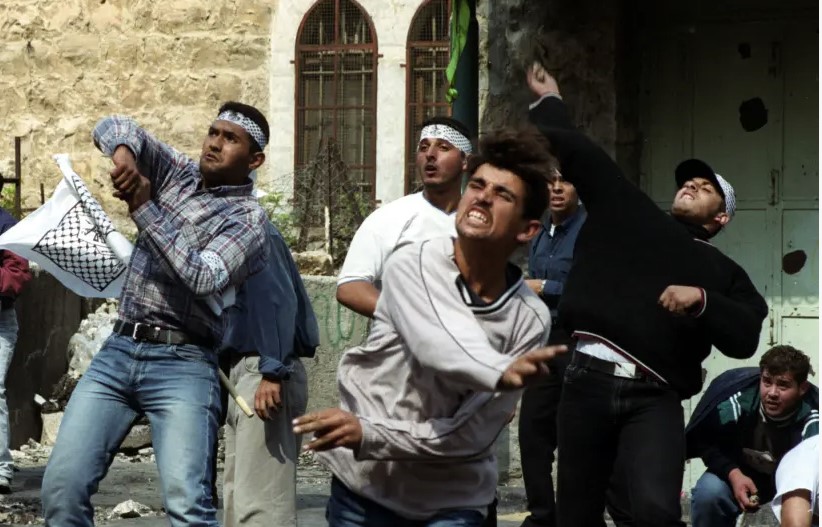
IJ: ‘Intifada’ means, in English, ‘uprising’. It was a popular protest movement against the Israelis. It took the forms of throwing stones at Israeli soldiers, raising Palestinian flags, singing national songs, building barricades to prevent the army from entering your area by very primitive means (like garbage bins or used tires or whatever). It was also accompanied by strikes, a closure of all shops and all institutions in protest of the presence of the army. And it also showed lots of demonstrations– in which women participated widely– because we have had enough of the Israeli presence. We feel that the Israeli occupation force is blocking the future for the Palestinian youth and adults from doing anything. You cannot control your land. You cannot control your economy. You cannot control your movement. You cannot even control getting education or any healthcare because the army was everywhere blocking your way to do anything.
Even if you want to issue a birth certificate, you have to get permission from the army and the army authority– they called it the Israeli Civil Administration, and it was not at all civil. It was all militaries controlling the population, and they are still there. Even with the presence of Palestinian Authority, the Israeli so-called ‘Civil Administration’ is still there and controlling all aspects of our life, as used to be the case before. And the Palestinian Authority is just a façade, you know, but the real decision makers are the Israelis.
So that was the first uprising that ended by the Oslo Agreement between Israelis and Palestinian in 1993. And according to the Oslo Agreement, the leaders of the Palestinian people in the diaspora, the Palestine Liberation Organization, the leadership of the Palestinians will come back home and it’ll administer the territories instead of the Israeli. The hope was to establish a Palestinian-viable state, but Rabin (who signed the Oslo Agreement with the Palestinian Liberation Organization, or the PLO) was assassinated in ‘94 after the signing of Oslo. And of course, the agreement was put on hold, especially after Netanyahu came to power. Since then, Oslo… we can say that it didn’t achieve its purpose or goal, which is having a quasi-independent Palestinian state. And instead we see more confiscation of the land and more control of the Palestinian resources.
AA: I remember learning, so correct me if I’m wrong, but Yitzhak Rabin was assassinated by an Israeli who was an extremist, who was angry at him for trying to make peace with the Palestinians. Is that correct?
IJ: Absolutely. Rabin was assassinated by an Israeli right-winger because he dared to sign a peace agreement with Israel. And of course this put an end to the Oslo Agreement. It was dying since its birth because the Israeli side never implemented what they were supposed to implement, which is to cease the expansion of settlements, to leave the Palestinian economy to grow and to be under the Palestinian authority, and to have Jerusalem as the capital for the state of Palestine, and the return of some Palestinian refugees. Not all of them, of course, according to Oslo; we have an estimate that there is around 6 million Palestinians who live in refugee camps or in the diaspora.
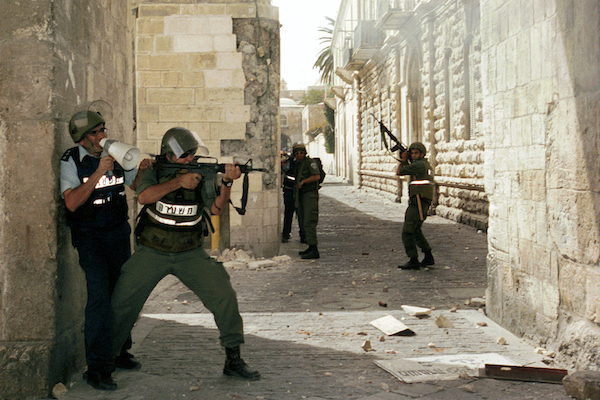
So anyhow, Oslo failed to achieve any tangible peace between Israelis and Palestinians. This led to the second uprising. And of course, the Israelis used excessive violence from the very, very beginning of the second uprising, because their image was tarnished in the first uprising to see the Israeli army fully armed to their teeth chasing kids and women in small streets. So, they didn’t want to see these massive civil demonstrations and the army shooting at unarmed civilians. They wanted to show that the second uprising is violent, as if Palestinian civilians are armed too, and they use the pretext of self-defense to shoot and kill any Palestinians taking part in any demonstrations or building barricades or whatever.
So the second uprising was quite bloody. And as I said the trigger was Ariel Sharon, one of the Israeli leaders at that time, going to the Al-Aqsa Mosque and the provocation for all Palestinians, and particularly Muslims, that they want to change the status quo of the Al-Aqsa Mosque which is the second holiest place to all Muslim all over the world.
That was the second uprising. And of course it did not achieve any benefits as usual. As I said, the Israeli policy continued to confiscate land and to suffocate the Palestinians to push them outside.
AA: So can you explain to us, and now we’re going to get into the topic of your book, who are the main groups that have been fighting Israeli oppression and what are the differences between these groups?
IJ: The main groups fighting the Israelis are many groups. First of all are the Palestinian refugees because you have Palestinians living in refugee camps who have been kicked out of their villages and cities inside Israel since 1948. So we have lots of refugee camps scattered all over the West Bank and you have lots of refugees also living in Gaza. We know that two-thirds of Gaza’s population are mainly refugees from cities and villages that have been controlled by the Israeli Authority after the establishment of the Israeli state in 1948. Even though the Jewish immigrants were in dire need of housing and places to live, many villages have been demolished and the houses were destroyed to prevent Palestinians from going back to their homes. So you have the refugees, as I said, in the West Bank and Gaza.
Second you have the peasants who have been affected by the Israeli policy of land confiscation. You have lots of Palestinians who are not allowed to cultivate the land or to grow trees on their land. So this is the second affected population. The third affected population is all Palestinians in general, because even if you don’t cultivate your land and you have few pieces of land or some properties, they are confiscated because they are in the way of the settlement expansion. So you can say that all Palestinians are affected by the Israeli policies in one way or the other.
AA: Okay. So let’s shift gears a little bit and talk about the organizations that are fighting Israeli oppression. I know that probably the two most familiar, at least to a Western audience, just a consumer of the media, would be the PLO (the Palestinian Liberation Organization) and Hamas.
IJ: The PLO or the Palestine Liberation Organization is the body that signed the Oslo Agreement with Israel to end the conflict. In this agreement, the PLO took the path of peaceful talks and deserted violence to combat Israel to reclaim the Palestinian land. And so, negotiation and peace talk was the main strategy taken by the PLO when they signed the Oslo agreement. But this strategy did not lead to anything. It only led to more killing of Palestinians. To more land confiscation of Palestinians. To more Judaization of the city of Jerusalem, kicking Palestinians out of the city and bringing more Jews to the city of Jerusalem because they refuse to recognize that Jerusalem is the capital for the state of Palestine and they claim that Jerusalem will be a united city because (according to the armistice in 1948) the city of Jerusalem was divided to Western Jerusalem and Eastern Jerusalem. Western Jerusalem was belonging to the state of Israel and Eastern Jerusalem to the Arab state, under Arab control. After the war of 1967, Israel united all the land of historical Palestine under its authority and occupied the West Bank and Jerusalem.
So, in this respect, the PLO by signing Oslo and having Jerusalem as the capital for the future state of Palestine….this did not materialize. And as I said, what happened? It’s more Judaization to the city of Jerusalem and the so-called unification of the city of Jerusalem under the Jewish control. And it never happened in the whole history of the city of Jerusalem. It was always a city open for these three monolithic religions: Islam, Christianity, and Judaism. So claiming that unified Jerusalem is a Jewish state is completely a crazy idea that leads always to bloodshed and conflict within this city, and it is a daily practice. We see it now every day.
Palestinians realized that the Oslo Agreement did not achieve anything for the people at all. And in the face of this reality, of course, we saw the emerging of new opponent groups to this path. They see that this negotiation, endless negotiations…we are negotiating with the Israelis more than 30 years now and it did not lead to anything. On the contrary, we see more deterioration at all levels in the economy, in mobility; all aspects of our life are deteriorating. So in the face of this, some groups emerged to contest this strategy as the only strategy for achieving the Palestinian goals. They see that going back to the use of violence against Israeli settlers and against Israeli soldiers is the right way to reclaim the Palestinian rights for independence and self-determination. Here comes the emergence of Hamas and other Islamist groups like Islamic Jihad.
AA: Okay. I’m gonna read a quote from the book if that’s okay, because it really struck me as something I really had never considered before. You write that quote, “Hamas has deliberately used the conflation between Islam and nationalism to nationalize Islam and confine it to the territorial context of Palestine and to Islamize Palestinian nationalism.” So I thought, oh yeah, that’s definitely the way it’s presented, at least in Western media: it’s a conflict between Jews and Muslims, not necessarily a conflict between nations. So could you explain this issue?
we see more deterioration at all levels in the economy, in mobility; all aspects of our life are deteriorating
IJ: It is not a religious conflict. It is a national conflict. And when I wrote about Hamas, Hamas is part of a bigger Islamic movement in the region that is called Muslim Brotherhood and of course all the branches of the Muslim Brotherhood (that was established in Egypt in 1928 on the hands of Hassan al-Banna, its leader) is to establish a state based on Sharia or based on Islamic religious teaching. Hamas, when it emerged, it was part of this Muslim Brotherhood movement, but it is not working in the case of Palestine as a pan-Arab or a pan-Islamic movement. It is not, for example, fighting in Egypt or in Jordan or in any country to establish an Islamic state. It contents its activities within historical Palestine.
But the core point here is that they distinguish between having a conflict with Israel because Israel is a Jewish state and seeing Israel as an occupier and occupying another nation. So all the Islamist groups, they don’t fight the state of Israel because it is a Jewish state, they fight it because it is a national state occupying another nation.
AA: That makes sense. So specifically, how have women participated in the different branches of Palestinian activism?
IJ: Well, the women were always an integral part of the structure of all Palestinian parties and organizations from the very inception of organizations and parties, from the 20’s onward. So Palestinian women were always integral, part of any form of social organization or political organization. Thus when the Islamic movement, even though they have some conservative views on the role of women and et cetera… but once they were popular and they started to be elected in different universities and different institutions (and later on in local councils and then the legislative election of 2006), they targeted women to include them in all their organizations and their political parties.
They managed to do a great deal to mobilize hundreds of thousands of women to take the streets and participate in demonstrations, participate in different popular activities like providing support for the Palestinian political prisoners, support to families of martyrs killed by the Israeli army, support our settlers, support the wellbeing of Palestinian families, support students to get better education or establishing clinics to offer better health service, et cetera, et cetera. So women were always integral part of all these activities.
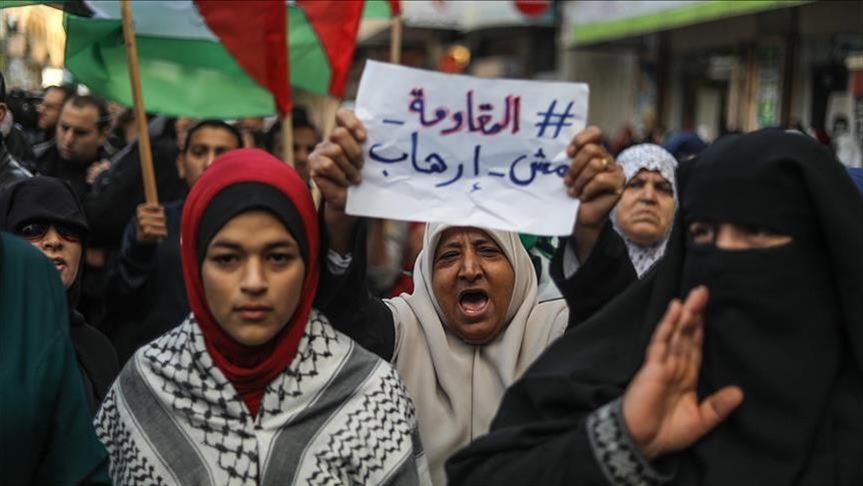
AA: I got the sense from the book that while women were always involved in the movement– and actually I’ll mention this too here because this was such a cool fact that you mentioned in the book– that in the very beginning after the British Mandate, when the British were in Palestine, that the British had kind of designated that in order to be considered a Palestinian, you had to be tied to the land through your father’s side. Like you had to have blood tie through your father’s side. And that Palestinian women changed that rule and said, “no, it could be through the father or the mother’s side.” And I thought that was really amazing. I think you mentioned that it was the first Arab nation that recognized lineage through the father or the mother, which was so cool.
IJ: Yeah. This is true.
AA: So one major theme that I got from your book was that some Palestinian women activists have felt a lot of restrictions and pressures, some from outside and some from inside. And I guess what I mean by that is you write about how Palestinian women have felt pressure (and we’ve talked about this on past episodes in other parts of the world as well) that colonizing nations will come into an area and kind of make women a symbol of backwardness and that they need to come in and ‘civilize’ this nation because they treat their women so poorly.
You talk about how British and Zionist leaders all gave their attention to this process of “modernizing” women as a measure of the legitimacy of their power in Palestine. And so women are fighting this pressure from the outside, this judgmental and paternalistic pressure. Is that an accurate assessment of that situation?
IJ: Yeah, absolutely. Absolutely. Because, you know, both the British Mandate and the Zionist movement raised the flag of modernizing the ‘backward nation’ that was plagued by, chronic disease and that women were governed by their superstition and backward values about their bodies and about their children. And how the Israeli came, for example, to clean up and to dry the swamps that brought malaria for lots of people and how they offered better health service to women and instead of giving birth in their homes to go to hospitals. It’s all propaganda, of course, because one of the things that Israel is also used to destroy is hospitals, health clinics, especially in villages.
You have documented stories of so many Palestinian women who died while they are giving birth on the checkpoints or give birth to their babies inside ambulances waiting to cross the checkpoints and prevented by the Israeli soldiers. So this ‘modernizing women’ was just a sort of whitewashing to the Israeli policies of discrimination and destroying the ability for women really to find work or to find better education. We just spoke about how when they closed all schools and kindergartens that led to the early marriage of some women. They don’t care about women’s education or women’s health, or women’s prosperity. It is just a tool to whitewash the horrible image of Israel as an apartheid state discriminating against all Palestinians including, of course, women.
AA: So on the one hand you have these pressures from the outside and this imperialistic colonizing influence from the outside. And then you write about the pressures from the inside, from the inside of the resistance movement. And one term that came up a lot was “the sacrificing woman”, right? At least some organizations… that they kind of discouraged women, or the men involved in these organizations would sometimes prohibit and limit women’s activism because they would say that women are supposed to be at home with the children and biologically reproducing more Palestinians and that they should be transmitting their culture to the next generation.
And so these women were struggling as they were trying to be enlisted in the cause because they were experiencing oppression from within those ranks too. Could you talk about that a little bit more?
IJ: Yeah, because you have a dilemma that faced the Palestinian women after the Oslo Agreement. Oslo made people imagine that they are building a Palestinian state and now the phase of national liberation came to an end, and now we are starting a phase of state building. That was an illusion that was nourished by the Oslo Agreement because when you talk about affairs of state building, it means that at least you control the basic elements for any state, which is the land and the population. But in the Palestinian case , you don’t control, either. I mean, you don’t control the land. You cannot specify what is the land for the state of Palestine. And you cannot specify what is the population is. Is, for example, the Palestinians living inside Israel are considered Palestinian citizens or Israeli citizens? Palestinian refugees living in Jordan; are they, Jordanian citizens or Palestinian citizens? Palestinians residing in Jerusalem? Are they Israeli ID holders or Palestinian citizens? So this illusion as if we are becoming a free state and building the institutions or the foundations for this state was a big illusion, and many women fell into its trap.
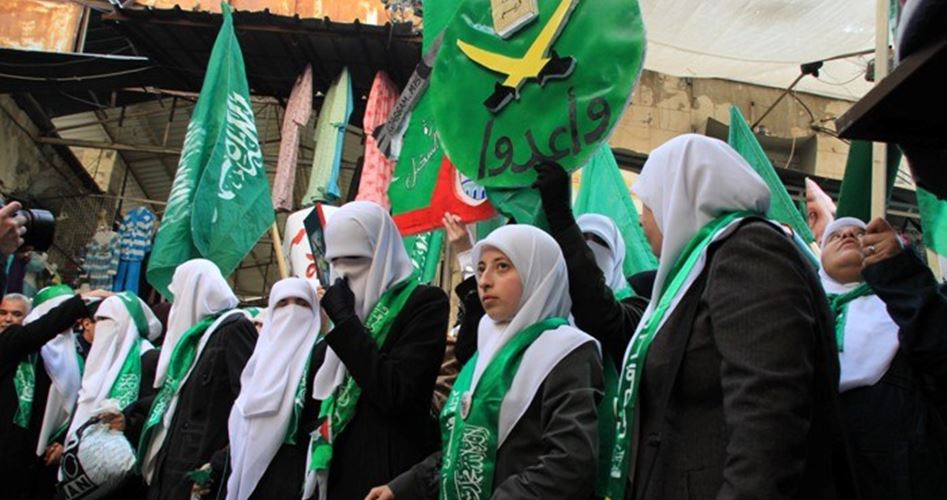
That was not the case for the Islamists. The Islamists see that this is not the phase of a Palestinian state building. We are still under occupation and we are still in the phase of national liberation. So all the women groups who started to claim the state for their rights, that we want equal rights to men, equal rights in getting jobs. Equal, right? Equal citizen rights in mobility or in Sharia law or getting divorced or getting married, et cetera. It fell on deaf ears because the Palestinian Authority could not deliver on this right claiming.
First of all, after 2006 (the second legislative election) a split happened between the PLO and the Islamist groups, or Hamas movement. The Hamas movement won the legislative election of 2006, and the split took place in 2007. And since then, there was a sort of paralysis to the Palestinian Parliament or the legislative council. It doesn’t exist, and besides you have more than half of the population…they tell you that we are not in a phase of state building, we are in a phase or a national liberation. So with this combination or this equation, the Islamists managed to do a great deal to discredit the feminist groups claiming for their rights and following the universal conventions like CEDAW or whatever– they managed to discredit them as limited or shortsighted women who cannot see the context that we don’t have a state, we don’t have a parliament. We are under occupation. We don’t control the land. We don’t control the population. So what right are you claiming? This is not the time for what we use to call the social agenda or the gender agenda. Instead, it is the time to sacrifice: to sacrifice our children, to sacrifice our life, to sacrifice our wellbeing for the sake of liberation.
And of course this was followed by lots of women who are the main target of the Israeli colonial policies. For example, this suits a lot the women, new mothers, or families of martyrs, or families of Palestinian political prisoners. You have thousands of Palestinian prisoners in the Israeli prisons. You have thousands of Palestinian families who suffered from home demolition, hundreds of thousands who suffered from land confiscation. So the basic rights concerning your land or your life are violated, and you leave this flagrant and gross violations of basic rights and you stick to rights concerning gender equality…they manage to ridiculize and to present it as this silly demand in the face of all this death and destruction, and these women as selfish, just looking for their freedom from their husbands. So that was the equation that was built by the Islamists and, as I said, it cornered lots of nationalist secularist feminist women. It gave a huge leeway for Islamist women to come to the foray and do activities that women before the Oslo Agreement in the national movement used to do, like give support to families affected by the Israeli colonial policies.
AA: Can I read a passage from your book that I thought was really illuminating on this topic?
IJ: Sure.
AA: You write that Islamist groups “glorified mourning women, elevating their personal suffering into national defiance and resistance. And the Islamist groups portrayed the model woman as the veil wearing caretaker of her husband and children, modest, patient, and pious as in the past. Most importantly, she was the bearer of male children to be sacrificed in order to continue the resistance. In short, the woman as giver. In contrast, feminist activism presented a new image of the woman as urban, professional, elegant, claiming her individual rights, society and her family. In short, the woman as taker.” And you say these images all coexist, so it’s very complicated for women, but they’re framing it as you’re, we need you to be a giver, not a taker. Which would be so difficult for women to have to choose sides like that, right?
…the foundations for this state was a big illusion, and many women fell into its trap.
IJ: Yeah, absolutely.
AA: You write a lot about Islamist women. Women who are, I guess, more comfortable participating in a more traditional setting, but still want to participate. You kind of ask in the book or you kind of talk about Islamist women in contrast to the feminist NGOs that are operating there. And you kind of asked the question, “can Islamist women who don’t accept the notion of gender equality, can they be feminists?” And I wondered, can they, in your view, and do other Palestinian feminists accept them as feminists?
IJ: Till today I find lots of difficulties for feminist women to accept Islamist women. They have in mind only one sort of feminism that is based on universal conventions and total equality and you know the rest. For Islamists, I call them a women’s movement, I did not call them a feminist movement. However they managed to form enormous women’s organizations, but they are not required to defy the existing gender regime in general. I mean, they are not defying it. They work under its rubric. But even though they are working under the existing gender regime, they manage to achieve lots of gains also for women.
They are targeting women in conservative families. So they are not, for example, if you have some conservative men contesting women’s work or contesting women’s education or contesting women’s traveling, they are defying all of that. They travel, they leave their kids and husband and they go to conferences. They work. And even though they tell you that we don’t believe in total equality between men and women, when it comes to issues like work, they say, “no, if we have the same work, we have to go to get the same payment.” So I said that this is equality. They said, “yes, of course, because we are putting the same effort as men in the work, so we have to get equal. We should not be paid less than men, even though men are required to take care of their families and to be the breadwinners for their families. But also women have the right to work and get paid equally.”
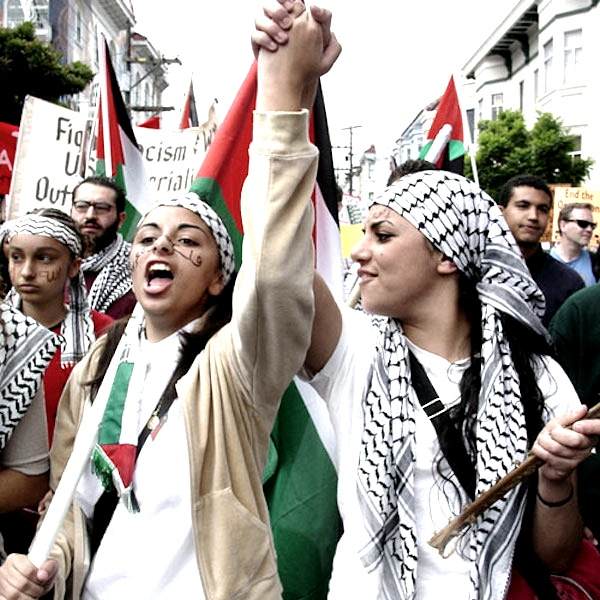
So we are talking about some sort of feminism that is wrapped by Islamic slogans and beliefs, but underneath there are so many waters running under, a current of water running to make changes to the lives of these women. We are seeing a different sort of feminism that is growing from within an Islamic context. And they are open for new interpretation and when they are cornered– for example, tradition and conservatives in Gaza, they say that once a man is killed and he’s a martyr, then the kids should go to the family of their father. These women made lots of activities to preserve the right for the mothers to keep their children with their mothers. So from within the Islamic context, a conservative context, they are slowly but gradually making some difference to their lives and to so many other women like them.
AA: So do you see Islamist women working together in concert with the more liberal feminist NGOs, or is there conflict between those two camps?
IJ: I presented in my book a strong critique for NGO’s and I was basically targeting women at the grassroots level in their different communities and the different communities affected by the Israeli policy. If we take all women in their respective communities affected by the Israeli colonial policies, we will see that women are divided by different beliefs. You will find nationalist women, Islamist women, and feminist women, et cetera. So if we talk about what is the better way to confront the colonial Israeli policy, I see here a very strong common ground for all women to stand on.
We will be standing in one area together, but in another area, we might argue, we might disagree, but we will not fight. You see my point? We will not fight because we should accept that women are different. We should accept that women are not a class. A woman is not a unifying idea for all women. You have women situated differently and women have different interests and different needs. We have to respect these differences. If we have mutual respect for these differences, I can see that we can forge a common ground to confront the Israelis and also to confront patriarchy.
AA: That’s really inspiring. Is there anything that you’d like to leave as kind of a takeaway or a final statement for the episode?
IJ: I end this program by calling upon all women to support Palestinian people and Palestinian women in their search for liberation and independence. This is a just cause and we have been suffering for so long, and it’s the time for all freedom lovers in the world to support the Palestinian cause.
AA: Is there any specific organization or any specific action that you could recommend that listeners could get involved in?
IJ: Yes, to join the BDS movement: Boycott, Divestment, and Sanctions against the state of Israel. This was a fantastic strategy that affected to a great deal the state of Israel and it tarnished its image that it wants to give about itself, that it’s a free, democratic, and humane state. So the BDS movement is exactly, as in the case of Apartheid South Africa– the BDS gave important support to the people of South Africa to achieve their goal in abolishing the discriminatory regime in South Africa. I hope to have the same situation and give support to the BDS movement to abolish the discriminatory regime established in our area against the Palestinian people by the Israelis.
So you have so many organizations giving direct support to Palestinian farmers. For example, many supporters come to live in the villages in the areas threatened by land confiscation and they help in protecting and supporting the Palestinian farmers. We have many organizations supporting girls education in our area, or children’s education. So I’m urging everyone to join this kind of organization, to join the BDS movement, and to support the struggle of the Palestinian people and Palestinian women to seek their freedom and liberation.
AA: Well, again, I want to thank you so much, Islah Jad, for your book and for spending this time with us today on the episode. It’s such an honor to get to know you and I’m really, really grateful for your work. Thanks for being here.
IJ: Thank you. Thank you for having me. Thank you so much.
It is not a religious conflict.
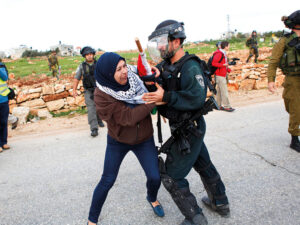
It is a national conflict.
Listen to the Episode
&
Share your Comments with us below!

